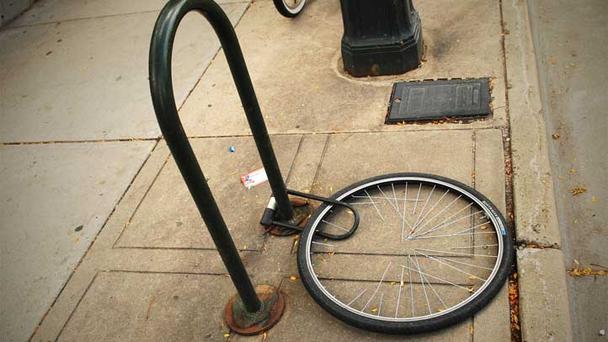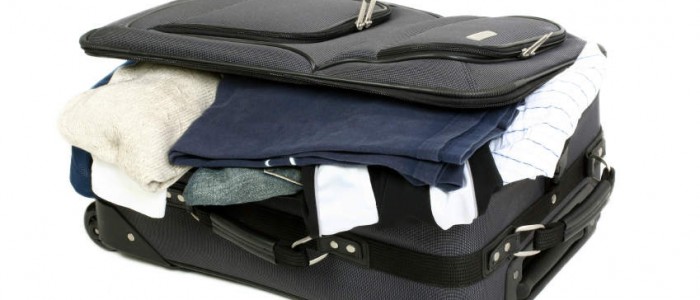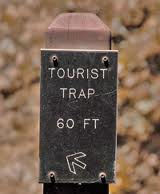
So after being abroad for a long time, you pick up a few things from the experience. Tips from other travellers, sneaky hints you can use to save money and you get a pretty good eye for spotting a scam. I wanted to write a post about some general travel tips and hints, basically things that are common pitfalls for tourists or new travellers and generally the little tips that can save you time/money or lots of frustrated and awkward haggling when you get caught out..
1) Toilet paper: In many countries around the world toilet paper is not available in each individual cubicle (or can’t even be flushed). You might have to purchase it before entering or it may not actually be available at all.. Anyway, I always have a handy pack of travel tissues in my day pack to try and avoid that awkward moment of reaching over to find only empty air..
2) Taxi advice: Rookie mistake yet super common, always negotiate up front exactly how much a taxi ride will cost (or the use of the meter), never just get into a taxi and expect to be driven somewhere without finding out the price first. This is the best way to get ripped off.
3) Money changers: Stay clear of changing money from money changers in the very touristy areas of a city, they will charge extortionate fee’s, and yes, even though the big sign says “no commission”. The best places to change money are always local banks, easy to find and they also generally have the best rates. A rule of thumb to see how much a money converter is charging you is to compare the buy and the sell prices.. the bigger the difference, the bigger the commission..

4) Pickpockets: ‘Nuff said about this already online so I’ll say only this.. YES it CAN happen to you and NO you won’t feel or notice a thing.. ensure while in any busy area like markets or crowds to keep a firm grasp on your valuables. Also when sitting at restaurant tables, taking pictures, chilling in parks or drinking at bars your stuff is fair game for thieves. Keep stuff in FRONT of you, never behind, keep hands on valuables in pockets and remember that a front pocket is better than a back pocket but still is not 100% secure. Most importantly just be aware of your surroundings and you will generally come home with the same wallet you left with.
5) Drinking water: When you get to a new area, start by Googling if the tap water is good to drink, there are many areas around the world where tap water is totally safe to drink yet visitors spend a whole bunch of money each day on bottled water.. One of the easiest ways to save a few dollars a day (believe me $5 a day on water adds up!) is to bring a water bottle with you in a daypack and fill it up from bathroom taps as you go.
6) Public transport: No i’m not talking about how to avoid getting eaten or stabbed on bus rides in the US, that’s a different story. This one’s slightly below the belt but it can save some money. I learnt this by watching the locals in Italy. Lots of places, especially around Europe will have a ticket validation system on busses, trams and trains where-by you purchase a ticket that’s only valid for travel once you validate it on board (using the machine). A sneaky way to save some cash is to buy a ticket and simply not validate it, keeping it with you and then if a ticket inspector hops on you can quickly validate the ticket to avoid any penalties. Locals love doing this so watch what they do and even if you don’t partake, it’s hilarious watching them fight over the validation machine when the inspectors come aboard.. as I said, it’s sneaky and so do this at your own risk but.. when in Rome..
7) Never take anything from people on the street: If anyone tries to give you a rose/bracelet/coin/ring AVOID THEM LIKE THE PLAGUE. It’s a great way to buy a 15 Euro rose or a crappy $12 wool bracelet. Once it’s on you they will demand money and pretty much not leave you alone until you pay. Shaking hands will generally end with you having to pay the person to let you go.. yes it’s weird, awkward and a big scene.. so best keep your hands to yourself and ignore those super ‘friendly’ locals who keep trying to give you their jewellery.
8) Language basics: Each and every country you visit will be an experience that can be far enhanced for both you and the local people if you make the small effort to learn a few pleasantries in the local dialect. Basic things like: yes, no, thank you, sorry, hello and please are in my opinion essential. You will have an infinitely better experience interacting with people in the service, retail and food industries if you use a bit of local lingo. As a guest in their country be polite enough to learn a few local words…

9) Tourist prices vs Local prices: Rates and prices change based on where you are in a city and many restaurants will actually have tourist menus which are usually about double (yes double) the prices locals will pay for THE EXACT SAME FOOD. Wherever possible order off the ‘local menu’ and to get the best prices avoid obvious tourist traps (restaurants where someone is standing out the front hustling people into the place). My favourite spots to eat are usually off a street cart somewhere less crowded and commercial then the major tourist centres.
10) Brutal packing: Before you leave look hard at all the things you’re bringing then leave half of them behind. Going forward a good guide to me is a bag about the size of airline hand luggage. This will not only be far easier to carry around, but you’ll save money on all those dodgy budget airline baggage charges they love to sneak over passengers for checked bags. Prioritise and be brutal, you won’t regret it.
11) Free days at museums: In many places around the world museums that charge entry can generally be accessed one day per week (or month) for free. Do your research and try to get to the paid museums on the free day, the lines might be a bit longer but for me the savings are enough of a reward, given some of the majors often charge $15-$25 per visit (which is enough to buy between 3 and 40 beers.. depending on where you are.. always the test).
12) To Sit or stand: Throughout Europe there are different prices in restaurants, bars and cafes for standing and sitting patrons. Sit and you will get hit with a service fee on top of the order, stand at the counter/bar and you simply pay for the order. Depending on how tired your feet are.. the choice/savings are yours.
13) Brekki and lunch vs dinner: Meals generally get more expensive the later in the day it is. A massive breakfast is almost always the cheapest large meal you can buy. A large lunch is a close second and a very distant third is dinner. Menu prices change based on the time of day so the EXACT SAME MEAL might cost you 50%+ more after 5:00pm. Make the biggest meal of your day breakfast or lunch and eat something lighter for dinner. Both your wallet and those love handles will thank you for it.
14) Directions: For those inevitable times when you get lost in a new city, Police are generally the best guides you can hope for. They know every back street, nook, cranny and alleyway of a city and in my experience are generally fine with helping a lost traveller out, so always remember this nugget of poetic brilliance: If your locations mistaken, just find some bacon!
That’s just a few of the top hints and tips I have for new travellers, remember that travel is a skill so the longer you do it the better you get at it. Travel well and always remember to enjoy the ride, even if you accidentally just helped put that taxi drivers kids through school..

Great advice, thank you. Just adding to what you said about having a big brekkie to save money on higher priced lunches and dinners, if you are staying at a hotel where a buffet brekkie is included, take / smuggle some bits and pieces you can take with you for later in the day. The staff don’t care and don’t ask. This can save you a decent amount in countries with high restaurant / cafe prices. And if you like a drop of wine with your lunch, buy it from a bottle shop and fill up your water bottle with it. You might not get away with bringing your own into a restaurant, but you can have a picnic in a park or at a beach with the food you got from the hotel buffet. Some countries/regions don’t allow alcohol to be consumed in public places, but wine in a water bottle is not going to attract attention.
Before negotiating with cabbies, get an idea of the prices you should be paying from hotel staff. Tell them where you want to go and they can give you a realistic price range which gives you a logical basis for negotiating fares.
Yep 2 excellent points Tom, thanks. I do enjoy to sneak out the odd bit of food.. recently in Budapest I managed to sneak out about 20 mini pastries.. enough for both me and my girlfriend’s lunch + snacks all day 🙂 We’d wrap them in napkins and slip them into her bag… you’re 100% right, that staff really don’t care and anyway all uneaten food literally goes in the rubbish after they stop serving breakfast, it’s a monumental waste, so its Karma free too haha.
To minimise the risk of pickpockets I put most of my cash, ATM/credit card in a money belt inside my pants/shorts. I’m pretty sure that if someone tried to put their hands down the front of my pants, I would notice. I keep the money I think I need in my front pocket.
If you have an expensive mobile/cell phone, keep it in the hotel room safe or leave it at home. Buy a cheap phone locally with a local pre-paid SIM card/number. You can always forward calls to your original number to the local number if you are expecting calls. Having your mobile phone stolen is an expensive and time consuming event.
I also recommend eating as much as possible if its a ‘free’ buffet breakfast. Even if it means taking a book down and reading for half an hour before going back to the buffet for more! And if you can spare the space pack a powerboard with your multicountry adapter. Allows you to charge two items at once and the cord is less likely to fall out of the wall socket. And pegs. Always take a few pegs (to hold curtains closed and also handy for washing. 😉
Great tips!